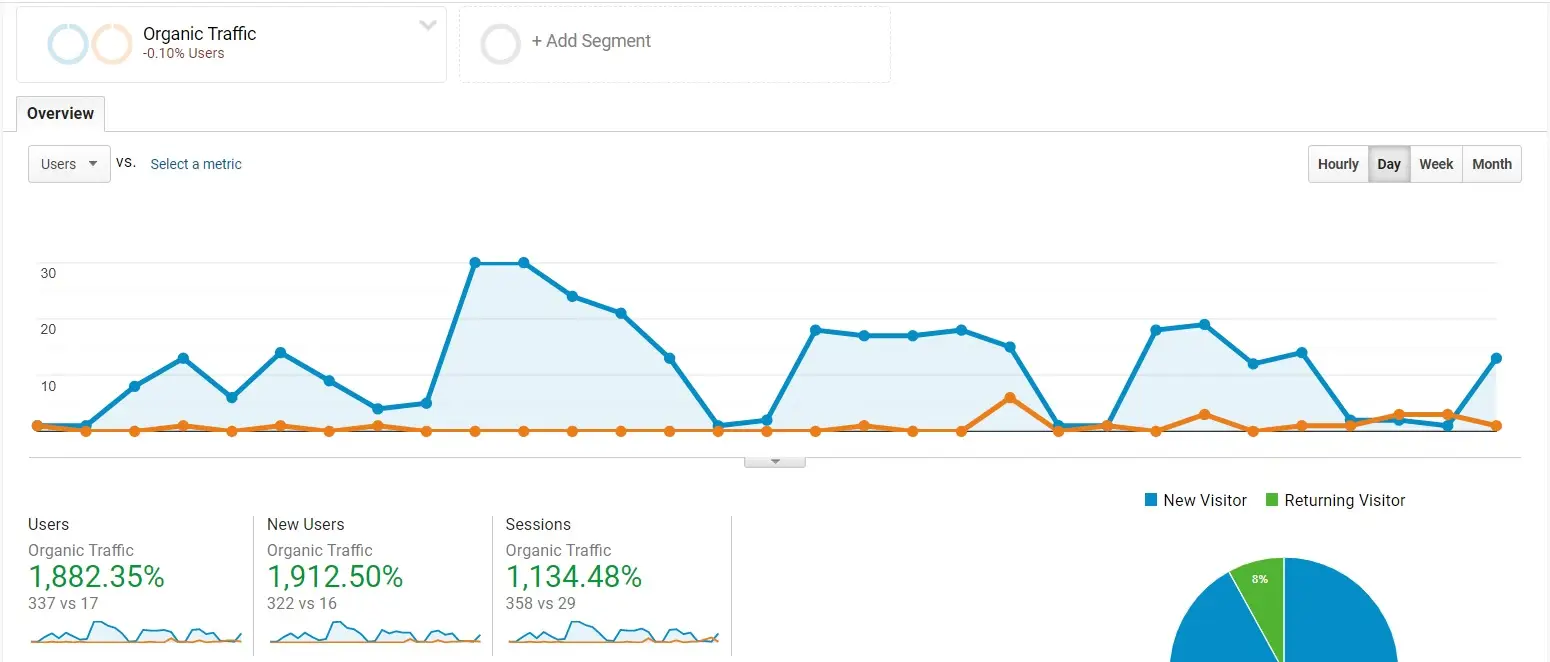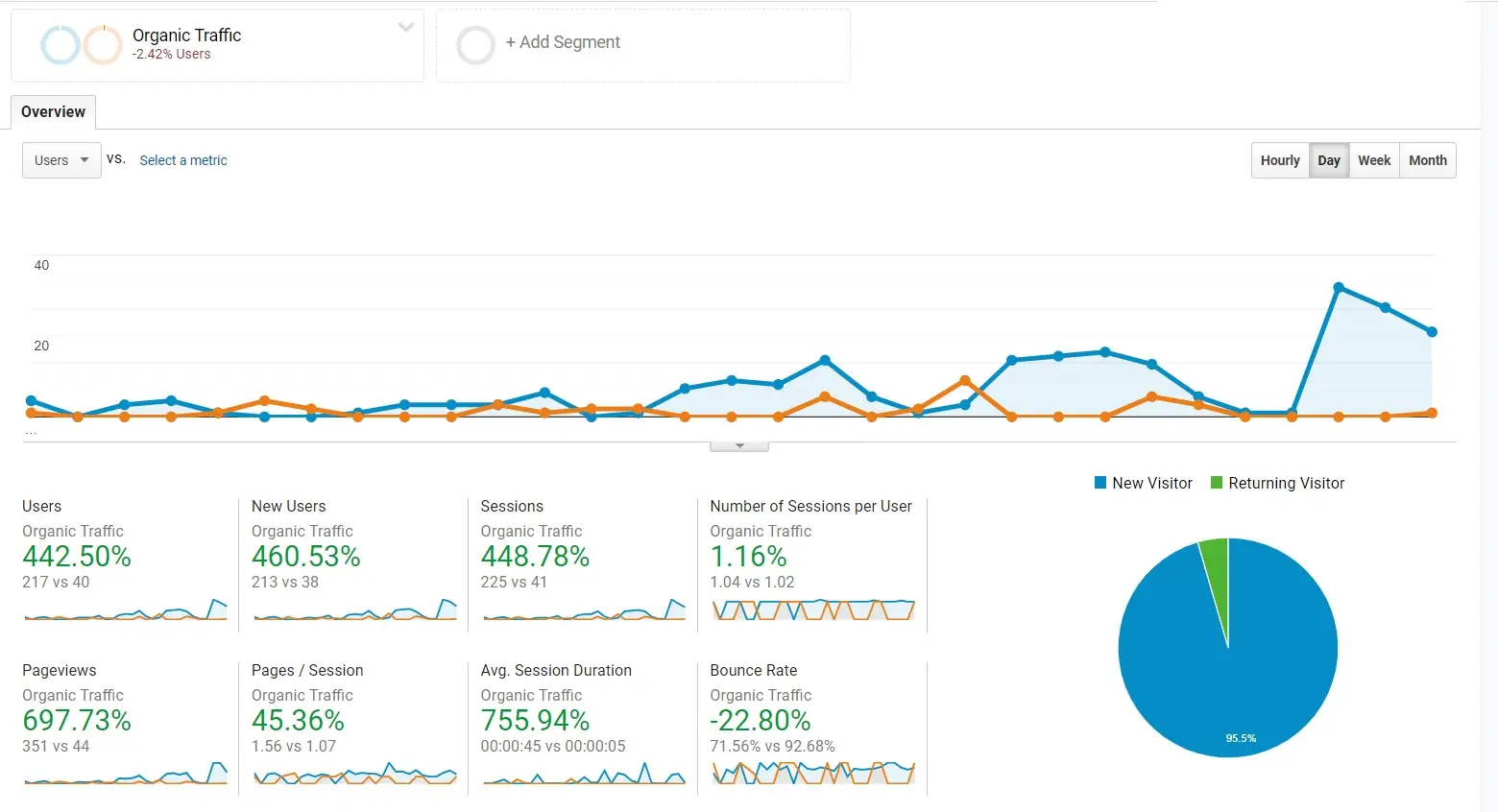E-commerce Excellence: Mastering Keyword Research for Growth
Understanding Ecommerce Keyword Research
Ecommerce keyword research is a fundamental aspect of a thriving online business, acting as the link between customer queries and your product offerings. In today’s fast-paced digital marketplace, grasping the specific terms and phrases that potential buyers use is essential for optimizing your site and boosting your search engine visibility.
This process includes pinpointing relevant keywords that correspond with your products, understanding user intent, and analyzing your competition—all vital steps to attract targeted visitors.
By conducting thorough keyword research, you can customize your content to fulfill customer needs, making it easier for them to find your offerings. Whether your goal is to enhance organic search rankings, refine product listings, or generate traffic through content marketing, a robust keyword strategy enables you to engage your audience more effectively.
In this competitive landscape, mastering ecommerce keyword research isn’t just beneficial; it’s crucial for achieving success in the online realm.
The Crucial Role of Keyword Research in Ecommerce
Keyword research is the game-changing strategy that drives ecommerce success, serving as a vital connection between your brand and enthusiastic shoppers. By identifying the specific words and phrases potential customers use when searching for products, you can fine-tune your content and listings to perfectly align with their needs.
This strategic focus not only enhances your visibility on search engines but also channels highly relevant traffic directly to your online store—leading to increased conversions and sales. Without effective keyword research, your ecommerce business risks fading into the background amidst numerous competitors, missing out on invaluable opportunities to engage with your target audience.
Moreover, understanding keyword intent revolutionizes your approach to customer interaction. By discerning whether users seek information, are ready to buy, or are trying to locate a specific website, you can craft personalized experiences that captivate and convert.
This involves creating compelling product descriptions, engaging blog posts, and targeted advertisements that resonate with what your audience is actively searching for. In a competitive landscape, harnessing the power of keyword research is not just an edge; it’s essential for establishing a brand that stands out and cultivates enduring customer loyalty. Unlock your ecommerce potential today and watch your sales flourish!
Long-Tail Keywords for Ecommerce: Driving Targeted Traffic
Long-tail keywords are more detailed phrases that potential buyers use when they are nearing a purchase decision. Unlike general keywords that cast a wide net, long-tail keywords focus on specific needs and intentions, making them an invaluable asset for ecommerce businesses.
For example, instead of aiming for a broad term like “shoes,” you might target a long-tail phrase such as “women’s waterproof hiking boots size 8.” This specificity not only attracts a more qualified audience but also boosts conversion rates, as those using long-tail keywords are often further down the purchasing funnel.
In the competitive realm of ecommerce, harnessing the power of long-tail keywords can provide a notable advantage. While these keywords may have lower search volumes, they also face less competition, making it easier to achieve higher rankings in search results.
By optimizing your product descriptions, blog articles, and meta tags with long-tail keywords, you can enhance your visibility among a focused audience. This targeted strategy not only strengthens your SEO efforts but also builds stronger connections with customers actively searching for your specific offerings. Ultimately, integrating long-tail keywords into your ecommerce approach can lead to improved engagement, increased sales, and a more dedicated customer following.
Identifying Game-Changing Keywords
Unlocking the potential of high-impact keywords is crucial for elevating your ecommerce strategy and attracting the right audience to your online store. Begin your journey by identifying keywords that resonate within your niche. Dive deep into the core topics that define your industry and leverage tools like Google Trends or keyword research platforms to compile a robust list of search terms. Explore both broad categories and precise phrases to create a rich keyword ecosystem that mirrors the interests and queries of your potential customers.
Next, turn your attention to your competitors’ search rankings. Analyzing which keywords are driving traffic to their websites can provide you with invaluable insights into market dynamics and consumer preferences. Utilize powerful tools like SEMrush or Ahrefs to reveal the keywords your rivals excel at, paying close attention to their monthly search volumes and competition levels. This analysis will not only illuminate popular keywords but also uncover strategic gaps that you can exploit for your advantage.
Finding unique keywords that distinguish you from the competition is essential. Seek out terms that your rivals may overlook yet resonate with your target audience. Engage in thorough market research, gather insights from customer feedback, and brainstorm creative variations and synonyms to broaden your keyword pool. This approach ensures that your content captures a wider array of search queries.
Establishing a systematic keyword research process is key to sustainable success. Make this a continuous effort rather than a one-off task. Regularly evaluate your keyword performance and adjust your strategies as trends evolve. By organizing your research, you can streamline your efforts and focus on the most promising keywords that drive results.
Creating a topic map can further refine your keyword strategy. This visual representation serves as a blueprint, outlining the main topics, subtopics, and related keywords relevant to your ecommerce business. A well-structured topic map not only clarifies your content landscape but also helps you develop a cohesive strategy aligned with user intent.
Finally, recognize the importance of differentiating content types in your keyword strategy. Whether you’re crafting engaging product descriptions, informative blog posts, or compelling landing pages, tailoring your keywords to suit each content format will enhance your SEO effectiveness. By aligning your content with the search intent of your audience, you’ll not only drive organic traffic but also convert visitors into loyal customers. This multifaceted approach to keyword discovery will empower your ecommerce business to thrive in a competitive digital landscape.
Popular keyword research tools
-
Google Search Console
A free tool from Google that provides insights into your site’s performance in search results, including keyword data and user interactions. -
Google Keyword Planner
An easy-to-use, free tool that shows search volumes and trends, helping you discover new keyword ideas relevant to your business. -
Ahrefs
Known for its extensive database, Ahrefs offers detailed keyword reports, competitor analysis, and backlink checking, making it invaluable for uncovering long-tail keywords. -
Helium10
A comprehensive software suite designed for Amazon and ecommerce sellers, featuring powerful keyword research capabilities along with competitor rankings and inventory tracking. -
SEMrush
This integrated tool focuses on keyword research, competitor intelligence, and content optimization, with features like the Keyword Magic Tool for exploring niches and finding semantic keywords. -
KWFinder
Ideal for identifying long-tail keywords with low SEO difficulty, KWFinder helps new or smaller ecommerce businesses establish their online presence. -
Moz Keyword Explorer
Offers insights into search volume, keyword difficulty, and potential click-through rates, allowing you to prioritize keywords effectively. -
Ubersuggest
A free tool from Neil Patel that generates keyword ideas and provides data on search volume and competition, perfect for beginners. -
AnswerThePublic
Visualizes search queries and common questions, helping you uncover long-tail keywords and understand user intent for better content creation. -
Keyword Tool.io
Generates keyword suggestions from various platforms, including Google, YouTube, Bing, and Amazon, based on autocomplete data. -
SERPstat
An all-in-one SEO platform that provides keyword suggestions, search volume analysis, and competitor tracking, all within a user-friendly dashboard. -
Soovle
A simple tool that offers keyword suggestions from multiple sources like Google, Amazon, and YouTube, great for brainstorming ideas across different platforms.
Conclusion
In conclusion, ecommerce keyword research serves as a vital link between potential customers’ search queries and your online product offerings. By pinpointing relevant keywords and comprehending user intent, businesses can effectively optimize their content and product listings to attract targeted traffic, significantly enhancing visibility and conversion rates. This approach is essential for distinguishing your brand in a crowded marketplace, ensuring that your products resonate with customer needs and preferences.
Furthermore, incorporating long-tail keywords into your strategy enables a more precise focus on specific search intents, drawing in highly qualified visitors who are more likely to convert. By continuously refining your keyword research process, analyzing competitor tactics, and utilizing powerful tools, ecommerce businesses can cultivate a strong online presence. Embracing these strategies is not merely advantageous; it is essential for thriving in the competitive digital landscape and fostering enduring customer relationships.


